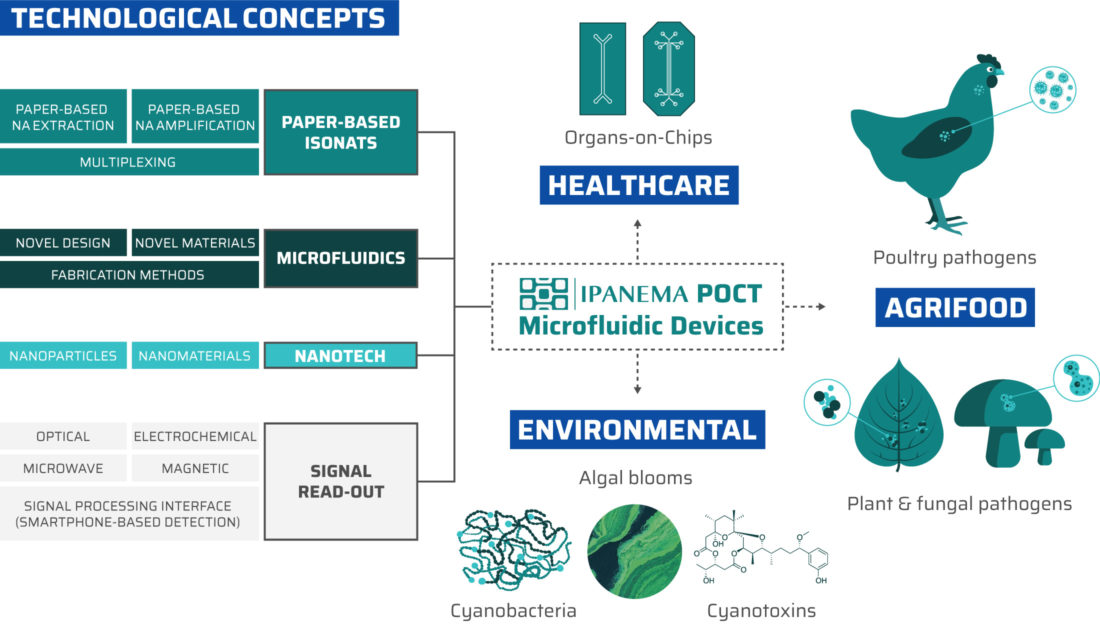Integration of Paper-based nucleic acid testing methods into microfluidic devices for improved biosensing applications (IPANEMA)
Reference number
FEASTS is funded under the EU’s HORIZON CL6-2023-FARM2FORK-01 call, grant agreement no. 101136749.


Partnering organisations
Biosense Institute, Wageningen University and Research, INRAE, INESC Microsistemas e Nanotecnologias, EKOFUNGI, PhotonicSys, Eden Tech, University of Novi Sad, XI’AN Jiaotong University, Columbia University, Diagenetix, Ben-Gurion University of the Negev
Coordinator at IBV
Boštjan Vihar
Duration
2020 – 2025
Back to the list
Short description
The IPANEMA project is dedicated to revolutionizing point-of-care (POC) diagnostics through the development of low-cost, paper-based microfluidic biosensing platforms. These platforms leverage isothermal nucleic acid amplification tests (isoNATs) to enable the rapid and sensitive detection of DNA or RNA from pathogens, including bacteria and viruses, even in minute quantities. By integrating isoNATs into microfluidic devices, IPANEMA aims to create diagnostic tools that are sophisticated, effective, affordable, easy to use and can be seamlessly integrated with smartphones, bringing advanced diagnostic capabilities directly to users’ fingertips.
At the heart of IPANEMA’s research and innovation activities is the integration of nucleic acid amplification techniques into microfluidic devices. This integration is aimed at developing diagnostic tools that meet the World Health Organization’s ASSURED criteria: Affordable, Sensitive, Specific, User-friendly, Rapid and robust, Equipment-free, and Deliverable. The project is also exploring the use of DNA probes and aptamers for highly specific pathogen detection, offering a more reliable alternative to traditional antibody-based methods.
IPANEMA is a multidisciplinary consortium that brings together partners from Europe, the USA, and P.R. China, bridging both academic and private sectors. The project’s work is set to make a significant impact across various industries, including healthcare, agriculture, and environmental monitoring, with applications ranging from tissue engineering and food safety to water quality assessment.
For more information about the project, please visit https://www.ipanema2020.com, and follow our work on the IPANEMA Linkedin page.
